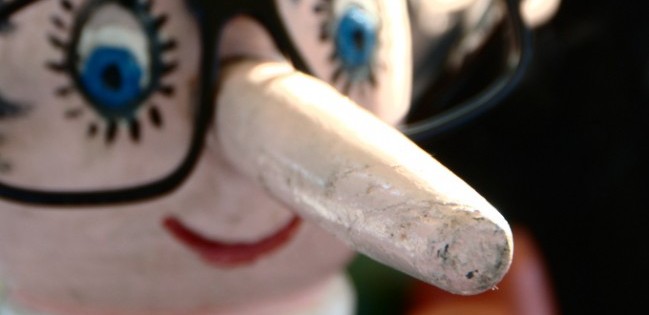 No matter what your parenting beliefs or techniques, most parents will agree on one thing: lying is a no-good, dirty-rotten thing to do. Yet some anxious children may be prone to lying, or at least telling a fib or two under certain circumstances. They may not be doing it because they are no-good, dirty-rotten children, but rather because they are afraid.
No matter what your parenting beliefs or techniques, most parents will agree on one thing: lying is a no-good, dirty-rotten thing to do. Yet some anxious children may be prone to lying, or at least telling a fib or two under certain circumstances. They may not be doing it because they are no-good, dirty-rotten children, but rather because they are afraid.
Link between Anxiety, Fear and Lying
Psychologist Michael G. Conner explains both anxiety and fear can lead to lying, with fear of facing or telling the truth as the underlying reason behind the lie. If an anxious child is afraid of going to school, for example, he or she may lie about feeling ill. Being ill may be less scary in the mind of the child than shamefully admitting a fear of the whole school scene where friends may be scarce and pressure to fit in may be high.
Anxious children can go even further in their avoidance of reality and how they truly feel about themselves by creating lies about anything and everything. They may begin to lie about their actions, their friends and families, their belongings and their abilities. They may say their dad is a superhero, their mom is movie star, they own six ponies, have 600 friends and they can play the piano with a blindfold on.
When Lies Become Chronic and Harmful
While the lies may seem innocent at first, they can rapidly turn harmful. Each lie can plunge a child deeper into a false reality where none of the underlying fears are ever exposed or addressed. Fears and anxiety can morph into phobias, making it tougher and tougher to get along in the outside world.
If an anxious child is lying to avoid reality, punishment can often make it worse. It, too, neither exposes nor addresses the deeper problem. The only thing it may teach a child is to get better at lying so next time he or she won’t get caught.
What Parents Can Do
If fear seems to be the catalyst behind a child’s lies, several tidbits of info from Psychology Today blogger Jeffrey Bernstein may help.
- Know your child may not be aware how hurtful lies can be. Explain why lies are typically frowned upon and point out how they can really hurt a relationship and generate mistrust.
- Coax out the real reason behind the lies. Encourage your child to disclose the real reason behind the lie, relating to his or her fears by exposing some of your own childhood anxieties.
- Point out other ways to deal with fears. Offer up solutions from your own childhood or even adulthood where you dealt with your fears through positive actions. Then brainstorm with your child on positive actions he or she can take when feeling the fears that usually lead to lying.
Keeping an open door for discussion is another key, letting your child know you’re always available to listen and help deal with fears of any size, shape or type. And then reinforce that coming to you is a much more positive tactic than lying.
SOURCES:
Photo Credit: Niccolò Caranti via Compfight cc





